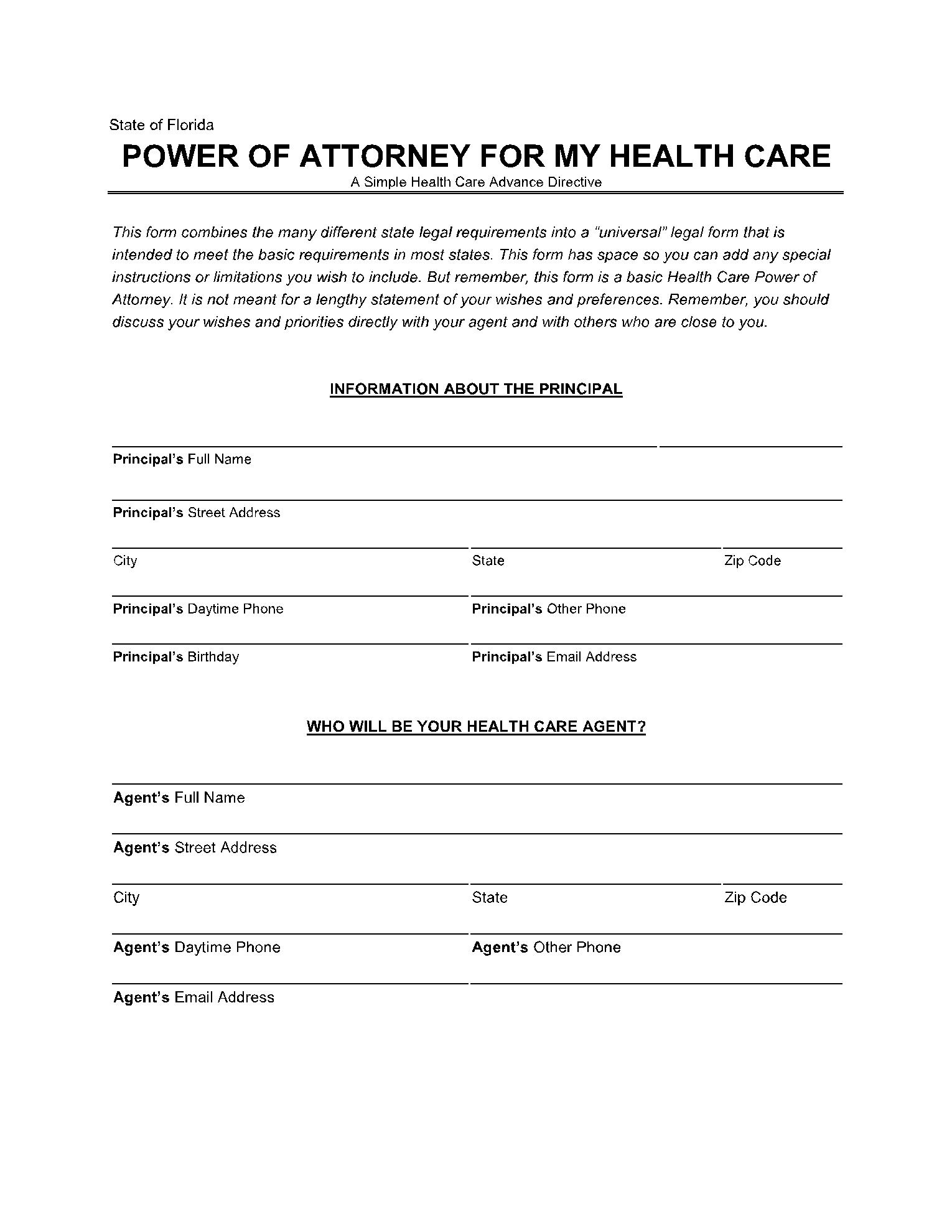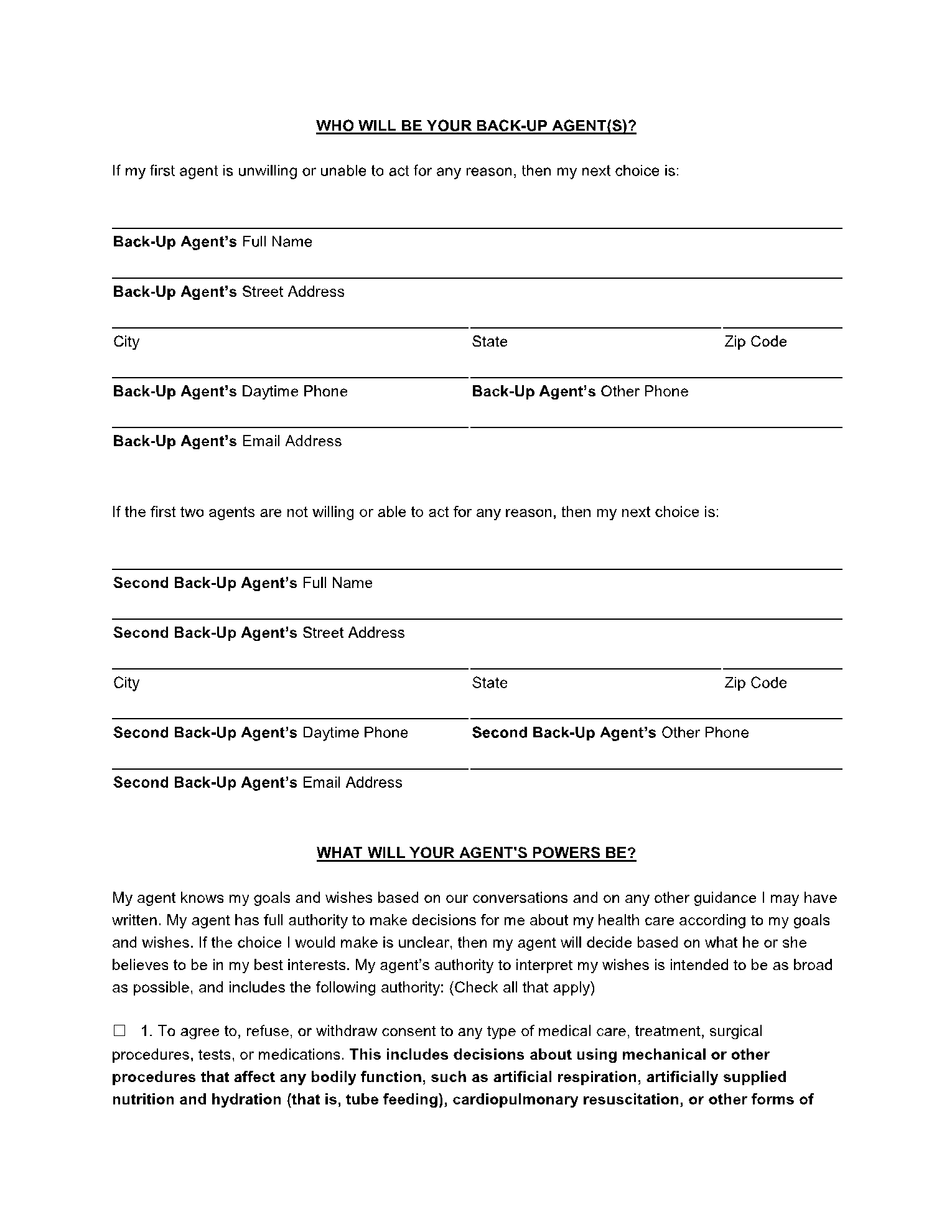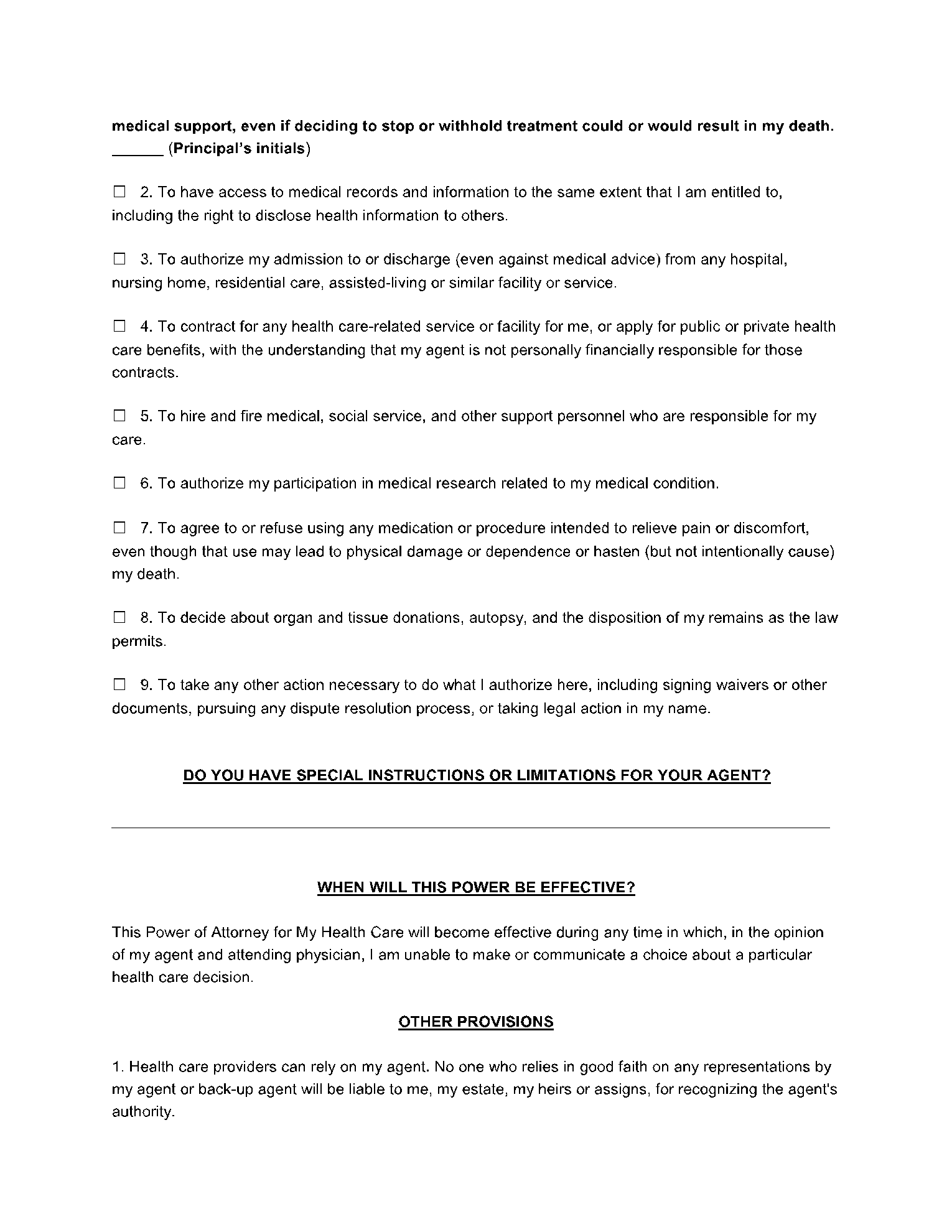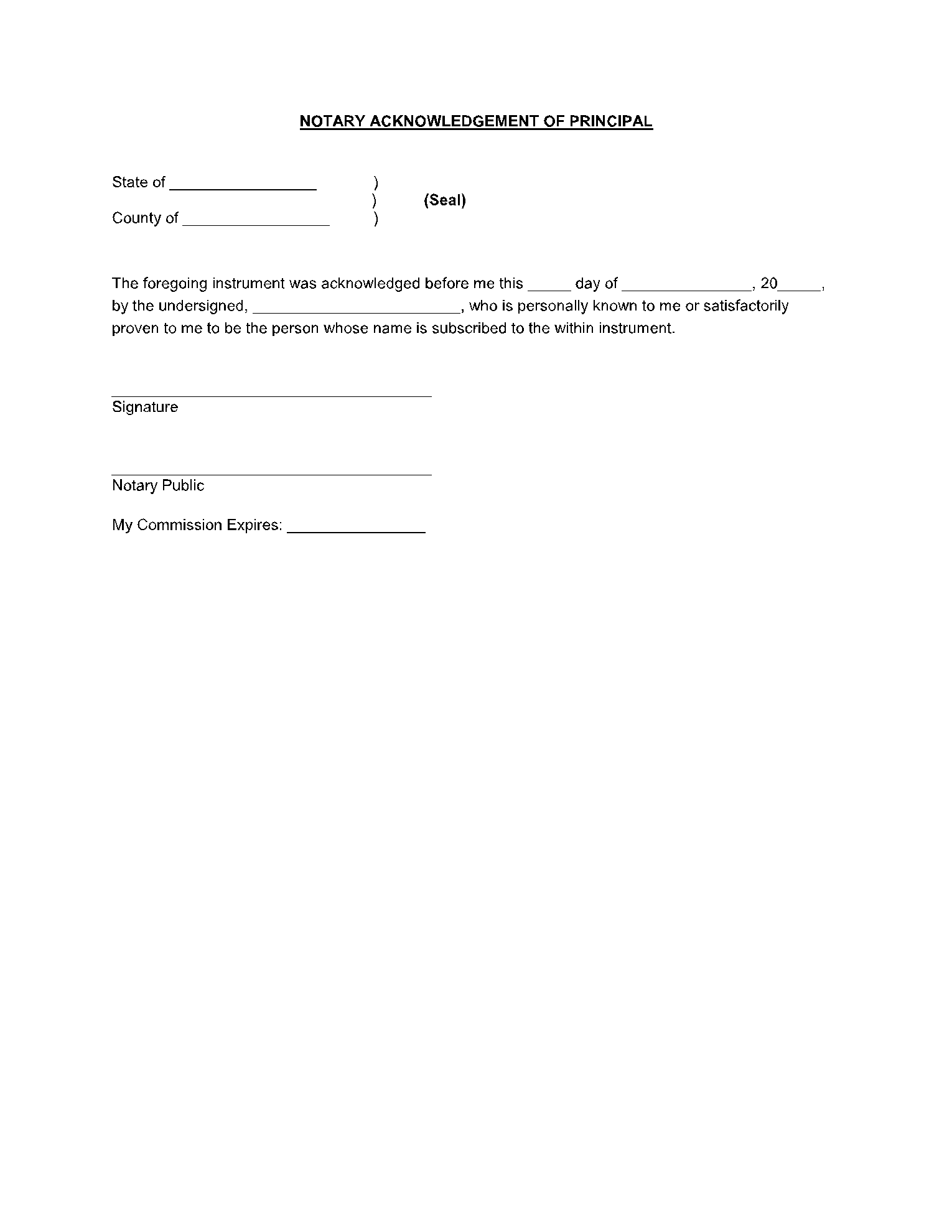In an event when a person is unable to take medical/health-related decisions for himself/herself, it often becomes a matter of contention amongst the family members to ascertain who could be the decision-maker.
To avoid such a conflict, and thereby any delay in providing medical help, the person can designate an agent to make medical decisions on his/her behalf. This power can be extended through a Florida medical power of attorney, which is one of Florida's most important poa forms.
To make it comprehensive, we have included the following components in this medical power of attorney template:
-
- Details of the principal and agent
- Principal location
- Revocation (details and terms)
- Information of the powers granted, management of the healthcare, end-of-life treatment options, etc.
- Applicable laws of the state
What is a Florida Medical Power of Attorney Form?
In Florida, the medical power of attorney form, also known as the “Florida Designation of Healthcare Surrogate,” enables a person (principal) to appoint a surrogate (agent) to undertake any medical/healthcare decision in case the principal is not able to divulge his/her wishes to the medical professionals.
The agent is aware of the principal’s requirement should a medical emergency arise. The medical power of attorney form in Florida is governed by Florida Statutes section 765.203.
A typical medical power of attorney Florida describes the following items:
- Name of the agent designated who will be responsible for carrying healthcare-related decisions on behalf of the principal
- Few options of the alternate agents in case the primary agent is not available or is incapable
- Contact details for both the primary and the alternate agents
- An outline of the powers conferred upon the agent
- Principal’s signature or undertaking
As outlined in section 765.101 of Florida Statuses, the following terms must be understood entirely:
- Principal – An adult who is of sound body and mind at the time of drawing the directive.
- Surrogate – The responsible adult designated by the principal to make decisions.
- Informed Consent – Voluntary agreement reached upon a complete understanding of the subject.
- Life-Prolonging Procedure – Medical treatments that are used to sustain an otherwise voluntary bodily function.
- End-Stage Condition – Any medical condition that has led to severe deterioration of the physical self and for which any treatment will be ineffective.
Who Should Have a Florida Medical Power of Attorney?
Medical power of attorney forms Florida can be drawn by and are helpful to any resident of Florida. There are many risks around you, irrespective of your age, gender, or health conditions.
Having a document like this can help you in times of unforeseen accidents and will allow you to take care of yourself even if rendered incapacitated. Especially if you have a specific wish, relating to end-stage conditions, this document allows you to appoint a trustworthy Agent to carry out those.
Although having a Medical Power of Attorney is helpful at any point in your adulthood, it is often created after the individual has faced some or the other kind of life-altering circumstances. Such as:
- After being diagnosed with a life-threatening medical condition
- Extended travel abroad
- Military deployment
- Accident of any kind
Why Is the Florida Medical Power of Attorney Important?
There may come a time in our lives when, due to certain medical conditions or injury, you will effectively be unable to make your own decisions regarding healthcare in Florida. For times like that, having a Florida medical power of attorney can make a world of difference. The document allows you to designate an agent who is reliable and trustworthy to make these decisions for you.
The medical POA Florida is used along with the living will in Florida. A living will specifies actions or measures that you want or do not want to be taken should the need arise. This will help your agent to make an informed decision concerning your healthcare.
Key Considerations
Designation of healthcare surrogate of utmost importance. Since not everyone is capable and/or willing to make such decisions, the Principal must keep in mind the following points:
- Age – It is important to designate an adult as your surrogate who is mature and responsible and has shown competence in handling crises.
- Relationship – Having a member of your family or a friend is helpful as he/she knows you closely.
- Trust – The agent must have the trust of the Principal.
Surrogate’s Decision-Making Power/s
Under Florida Statutes section 765.205, a surrogate has a blanket authority over all the decisions relating to healthcare, the principal may make it more specific. A principal can enable the Surrogate to:
- Access his/her medical records
- Have a final say over the medications being administered
- Apply for public benefits
- Choose a nursing home or assisted living facility
Limitations of the Surrogate
Under section 765.113 of Florida Statuses, a Surrogate cannot undertake the following decisions, unless explicitly mentioned by the Principal or allowed by the courts.
- Administration of electroshock therapy
- Sterilization
- Abortion
- Treatments that are not approved by the federal review committee
- Withholding life-prolonging procedures if you’re pregnant and have not yet reached viability
Visit CocoSign to download the health care surrogate forms Florida you need, to draw up the Medical Power of Attorney in Florida. CocoSign has a range of templates for all types of power of attorney, including the medical power of attorney that can be drawn in Florida.






